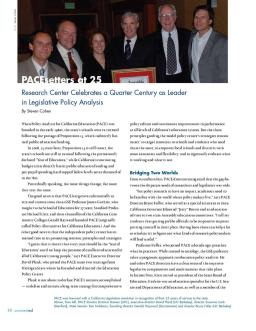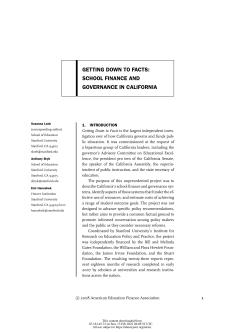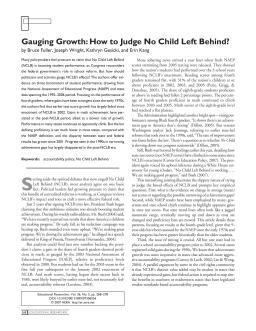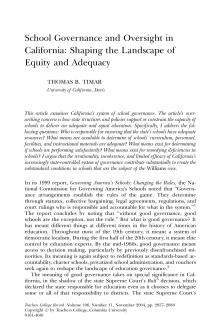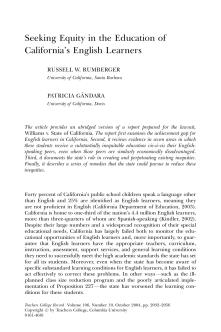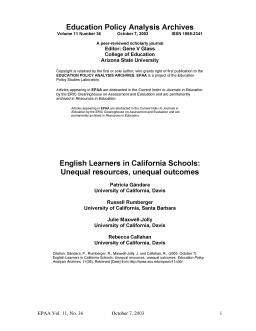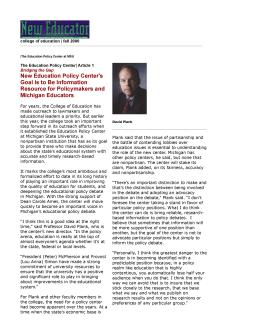Research Center Celebrates a Quarter Century as Leader in Legislative Policy Analysis
Published
Summary
The call for improved education persists annually within PACE, emphasizing the perpetual need for progress. Even with strides made, the organization does not consider its mission accomplished. Guided by three core principles—allocating resources to disadvantaged schools, granting autonomy to local districts, and rigorous evaluation of educational efficacy—PACE remains dedicated to fostering lasting policy reform and enhanced educational performance across California's system. Leveraging experience from Michigan State's Education Policy Center, PACE's leadership continues to drive the...
School Finance and Governance in California
Published
Summary
Getting Down to Facts is an extensive investigation of CA's public education system commissioned by a bipartisan group of CA leaders. The project aimed to describe California's school finance and governance systems, identify obstacles hindering resource utilization, and estimate costs to achieve student outcome goals. The project resulted in 23 reports by scholars, which highlight that the current school finance and governance systems fail to help students achieve state performance goals, particularly those from low-income families. The reports provide a framework for assessing reform options.
How to Judge No Child Left Behind?
Published
Summary
This report analyzes the effects of No Child Left Behind (NCLB) on student performance using three barometers: the National Assessment of Educational Progress (NAEP), state data, and fourth-grade test scores. The authors find that earlier test score growth has largely faded since NCLB's enactment in 2002, and progress made in narrowing achievement gaps in the 1990s has largely disappeared in the post-NCLB era. The report suggests that policymakers need to reconsider the efficacy of NCLB and consider alternative approaches to school reform.
Shaping the Landscape of Equity and Adequacy
Published
Summary
This report focuses on California's school governance system and how it affects schools' ability to provide an adequate and equal education. The author examines who is responsible for ensuring adequate resources, how to assess adequacy, how to determine school performance, and how to address deficiencies. The report argues that California's state-controlled governance system is irrational, incoherent, and limited in efficacy, contributing to substandard school conditions, as seen in the Williams v. California case.
Published
Summary
This article presents a summary of a report prepared for the Williams v. State of California lawsuit, highlighting the achievement gap for English learners in California and seven areas where they receive an inequitable education compared to their English-speaking peers. It also documents the state's role in perpetuating these inequities and proposes remedies to reduce them.
Unequal Resources, Unequal Outcomes
Published
Summary
This article discusses the inequitable education provided to English language learners in California, arguing that there are seven areas where these students receive an inferior education compared to English speakers. That includes having less qualified teachers, inferior curriculum, and being assessed with invalid instruments. The article provides suggestions for addressing these issues.
New Education Policy Center's Goal Is to Be Information Resource for Policymakers and Michigan Educators
Published
Summary
Michigan State University's College of Education has established the nonpartisan Education Policy Center to provide lawmakers and educational leaders with accurate, research-based information to improve the state's educational system. With the support of the university's resources, the center aims to play an important role in deepening the policy debate and bringing about improvements in the system. The center was established due to a lack of systematic communication between researchers and policymakers in Michigan.
